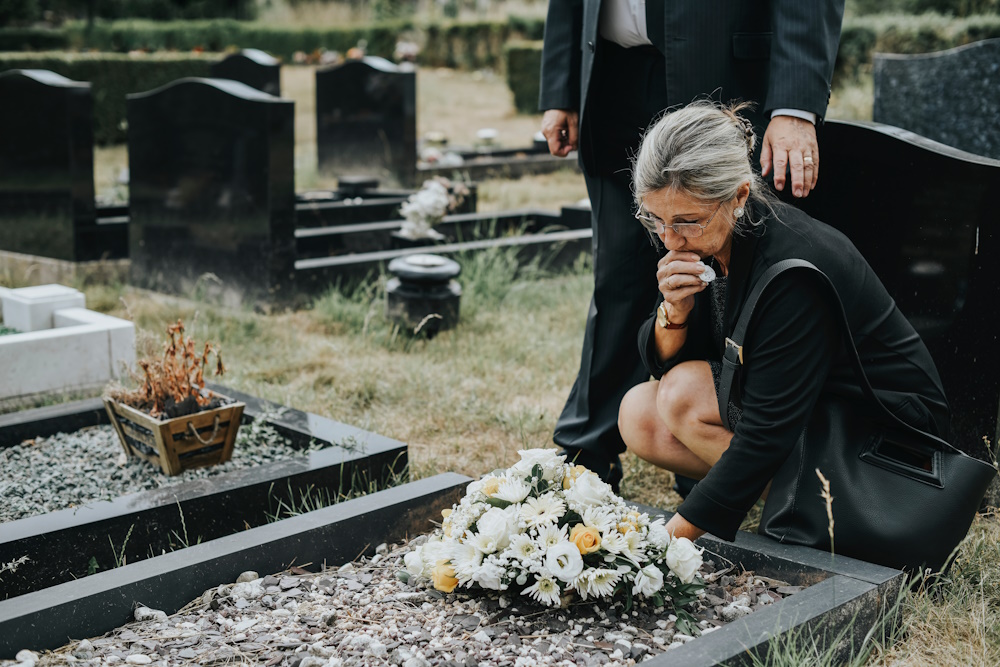Veterans Affairs benefits, or VA disability benefits, are funds provided by the U.S. Department of Veterans Affairs. These VA disability benefits are generally designed to aid veterans and their families in different areas including health, education, home loans, and more. Often, dependent benefits are provided to the immediate family members for a disabled or deceased veteran. A survivor benefit is often extended to the surviving spouse and children. However, circumstances can become more complex when considering rights to these veterans benefits for ex-spouses. This raises the question, can an ex wife get VA benefits after death?
Eligibility Criteria for VA Benefits
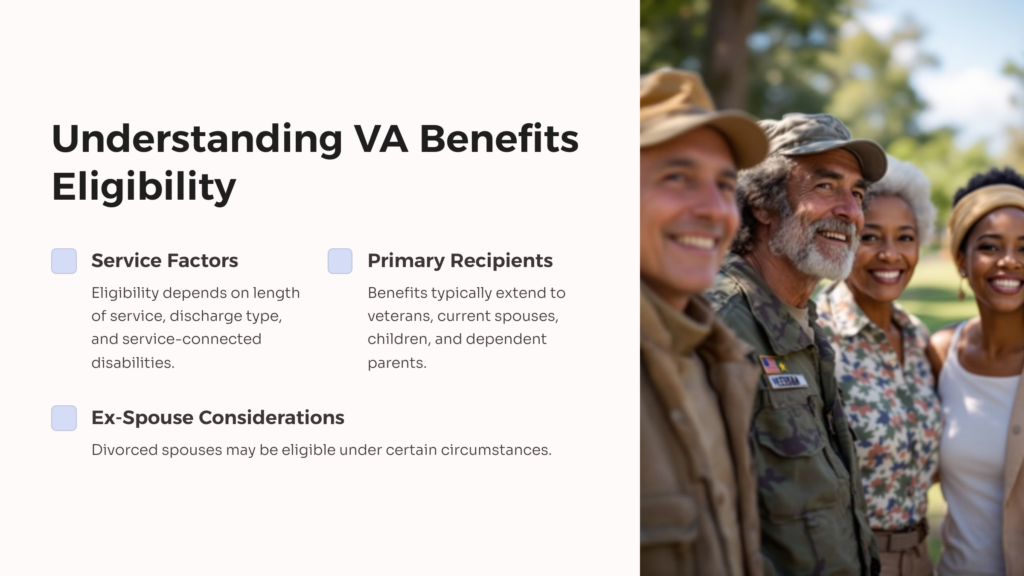
VA benefits eligibility is mainly determined by the veteran’s length of service, type of discharge, and sometimes the nature of a disability connected to their service. Typically, it’s the veterans and their current spouses, children, or dependent parents who are entitled to receive these veterans benefits. In certain instances, a divorced spouse can also be eligible for a survivor benefit plan, but the factors affecting this eligibility can be elaborate and multifaceted, spanning from the reason for divorce to the length of the marriage.
Overview of VA Benefits Available to Ex-Spouses
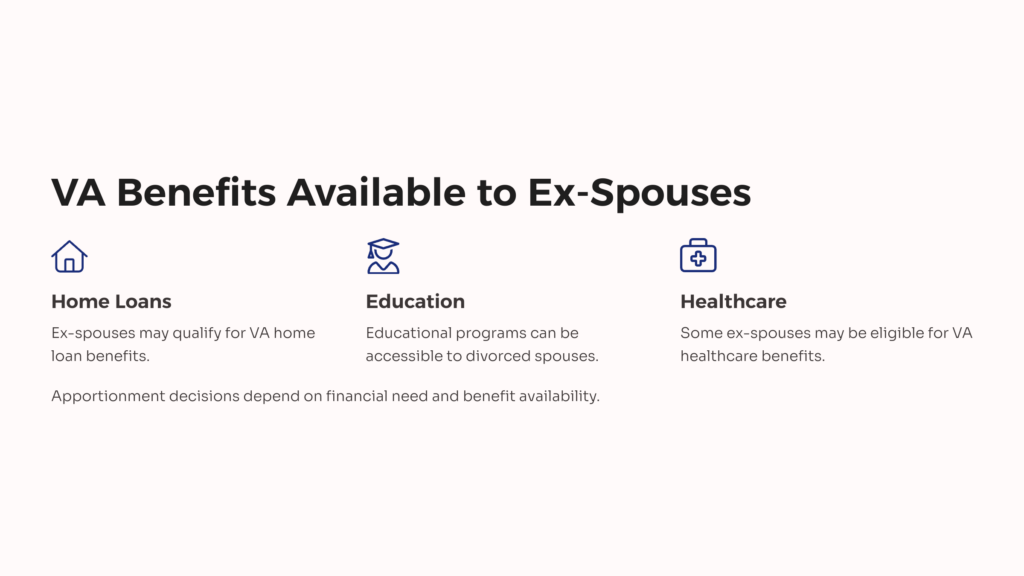
Some of the VA benefits a divorced spouse might be potentially eligible for include a portion of the veteran’s disability compensation, educational programs, home loans, life insurance, healthcare, and more. However, an important concept in VA benefits is the process of apportionment. This refers to the distribution of a portion of a veteran’s disability payment or death pension benefits to family members such as spouses or children. The apportionment decisions often depend on factors such as financial need, benefit availability, or the decree of a court.
VA Benefits for Ex-Spouses After Veteran’s Death
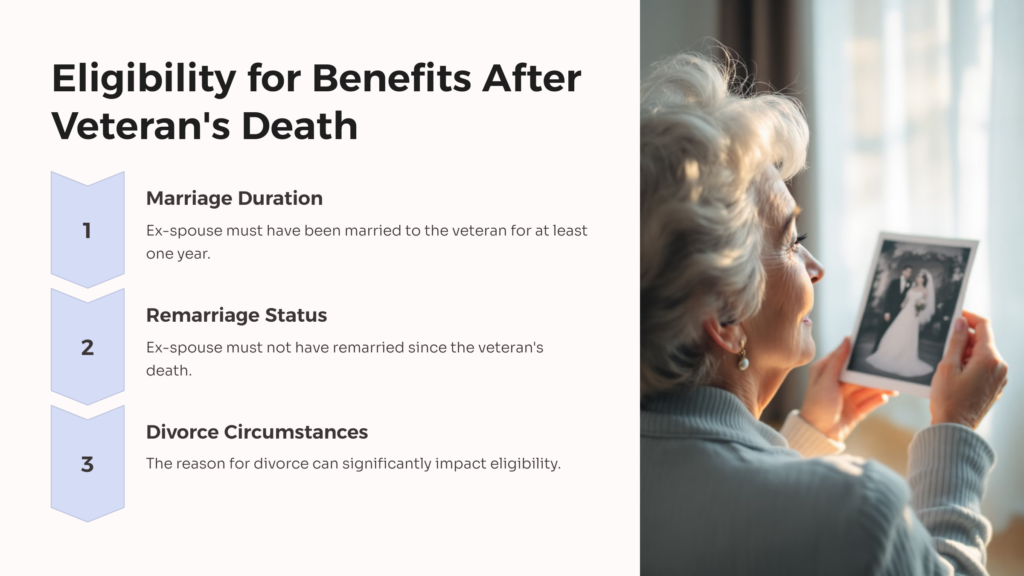
To qualify for VA benefits post their spouse’s death, the ex-spouse must meet certain requirements. For instance, they must not have remarried since the veteran’s death and must have been married to the veteran for at least one year. The reason for divorce can also significantly impact their eligibility. In cases where the veteran was not at fault for the divorce, it might be harder for the ex-spouse’s VA disability claim.
Procedure to Apply for VA benefits
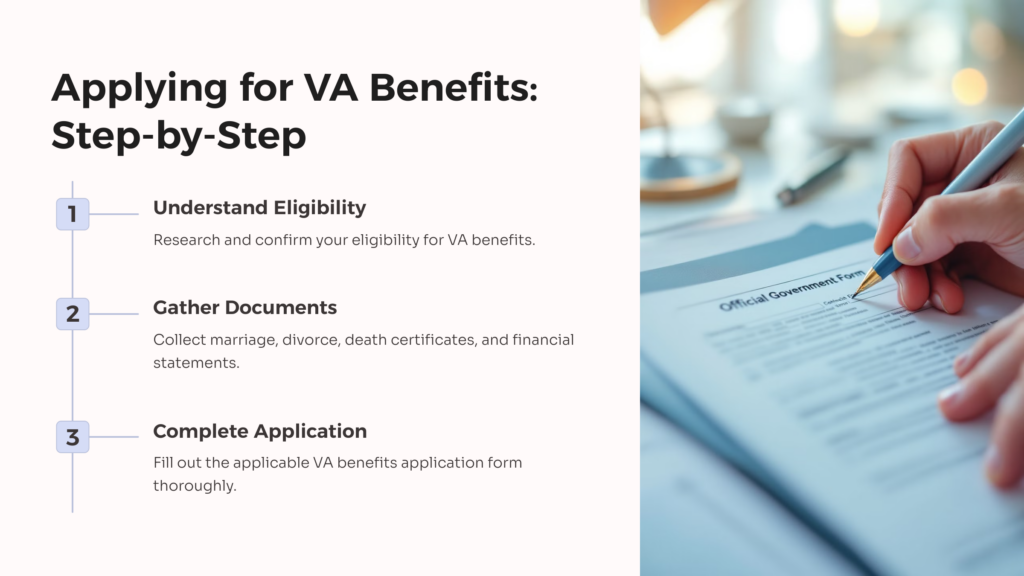
Applying for VA benefits involves a process that needs careful attention. It begins with understanding the eligibility, followed by collecting necessary documentation such as marriage and divorce records, the death certificate of the veteran, and in some cases, financial statements. The next step is to complete the applicable VA benefits application form. The process can be time-consuming, requiring patience and comprehensibility.
Overcoming Common Challenges
Ex-spouses often face challenges while applying for VA benefits after the veteran’s death. Some of these obstacles include proving financial need, exploring the chances of benefit apportionment, or showing the veteran was not at fault for the divorce.
To alleviate these challenges, ex-spouses can seek legal counsel, gather substantial evidence, and be prepared for extensive paperwork. The VA is always willing to work with you!
Legal Assistance in Benefit Pursuit
Understanding and navigating through VA benefits eligibility criteria isn’t always straightforward. Legal assistance can play a significant role in such situations. Attorneys experienced in veterans’ rights and benefits can provide valuable guidance that both ensures the correct interpretation of the law and protects the interests of the ex-spouse. Veterans Service Organizations (VSOs) or legal aid societies are good starting places for finding appropriate legal help.
The question of whether an ex-wife can receive VA benefits after a veteran’s death is complex and depends on numerous factors. Variables such as the length of marriage, reasons for divorce, and financial necessity can impact eligibility. Furthermore, navigating the process of applying for benefits can be a tricky task, and legal consultation may be a beneficial part of an efficient application process. Check us out at AllVeteran.com and take our free medical evidence screening to get started today.
 AllVeteran.com Advisors
AllVeteran.com Advisors
With expertise spanning local, state, and federal benefit programs, our team is dedicated to guiding individuals towards the perfect program tailored to their unique circumstances.








